
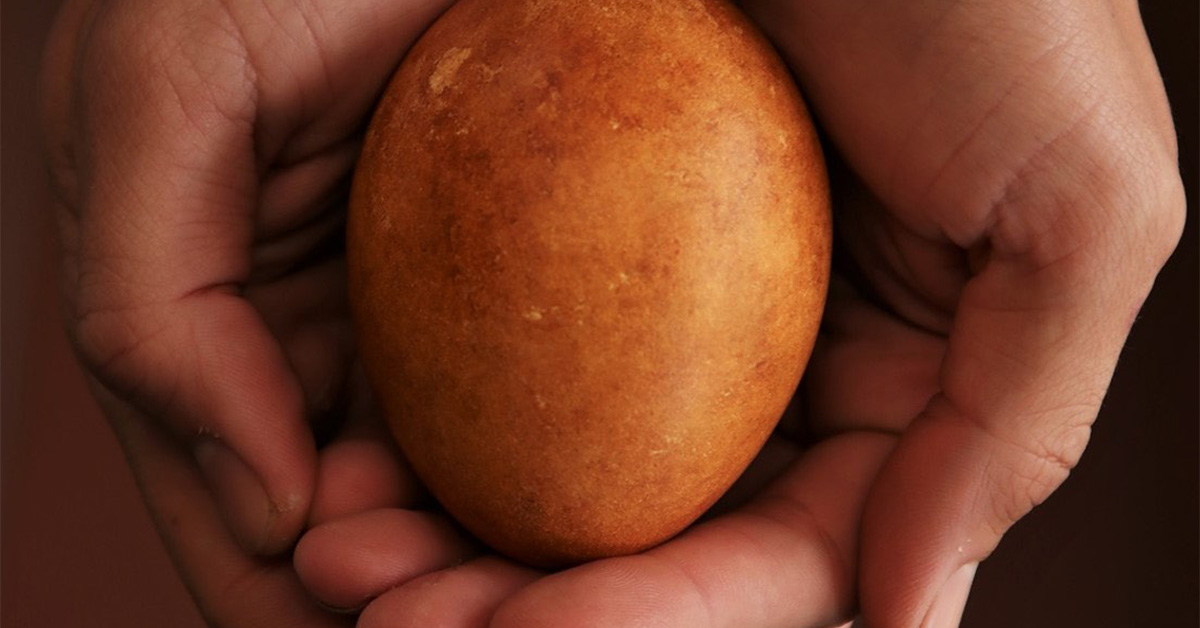
Holly Enter lives in Ontario, Canada, with her family of seven where she discovers creative opportunities in the midst of a practical everyday life. You can follow her creative journey at instagram.com/holly_enter. Paintings by the author.
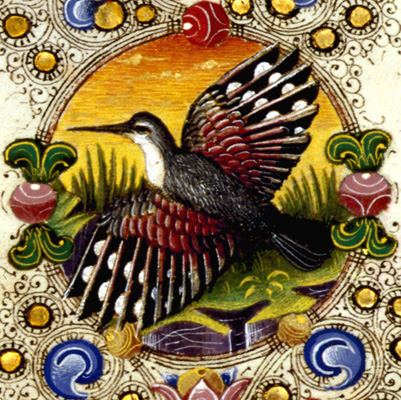
I can vividly recall one spring afternoon many years ago when I came across an unexpected sight in the woods near my childhood home: an apple tree in full bloom, its delicate pink-tinged petals gently falling to the ground like snow. It was a moment of wonder; not only at the magical scene I had unexpectedly entered, but because I alone was in this place to enjoy it. It seemed to me that all this beauty was wasted in its hiddenness. I wondered then, and have often wondered since, at the fact that God cares so much about beauty. He creates it even in places where no one else will see it.
This may have seemed like a revelation to a young girl, but the evidence of this is everywhere. There’s no question that God cares about beauty for its own sake. He created a world that is not only functional, but beautiful. When one reads the detailed specifications for the temple and its articles, it’s clear that God values craftsmanship and artistry. Further reading reveals how he cares about skilled musicians and beautiful lyrics; good storytelling and lyrical poetry. (How differently we’d feel about the psalms if they were written in prose!)
All throughout creation, we see beauty for the sake of beauty, often with no apparent practical function. We marvel at this truth on clear nights when we look at the stars. “And He made the stars also,” the creation accounts tells us, nearly in afterthought, as though the spontaneous flinging of innumerable flaming orbs throughout the universe by just a word requires no further elaboration. We wonder at the purpose of this vast universe, much of it unseen and unknowable. The psalmist hints at a reason: “When I consider your heavens, the work of your fingers, the moon and the stars, which you have set in place … what are human beings that you care for them?” This creator, artist, designer – the one who brings all this wondrous, breathtaking beauty into being so effortlessly – cares about insignificant you and me. Clearly all this seemingly impractical creative beauty reveals something about God’s character that we are meant to discover in the midst of our practical, everyday lives.

I consider myself a practical person. My background is in nursing, not art. I only recently took up painting as a hobby, when Covid lockdowns gave time to pursue something other than the usual daily work that filled my days. But practically speaking, I struggled to find purpose for creativity. Admittedly, the impetus behind creating sometimes felt uncomfortably more like drive than pleasure.
This intrinsic creative drive may reveal itself in a variety of ways, yet all point to being created in the image of a creator who loves to create. We need not be applauded for our efforts, or punished for our lack; our ingrained desire to create and pursue beauty drives us. Like the Tolkien character, Aulë, who created “because he is the son of his father,” we too long to imitate our Father in heaven. As I began to recognize the truth of this, I began to search less for outside motivation or some practical reason for creating, and began simply to pursue creativity for its own sake.
There were other reasons to lean into this drive to create. It’s easy to slip into the role of consumer (and critic) of culture, rather than putting effort into a counter-cultural offering of our own. Andy Crouch writes extensively on this concept: “The antidote to being a mere consumer is to become a creator. Life is not about waiting for the market to offer you thrilling experiences, but to actually be someone who jumps into the work of making something beautiful and true and good for the world.” By promoting what is beautiful and true and good, we have the opportunity to offer a picture of the gospel through our work and art.
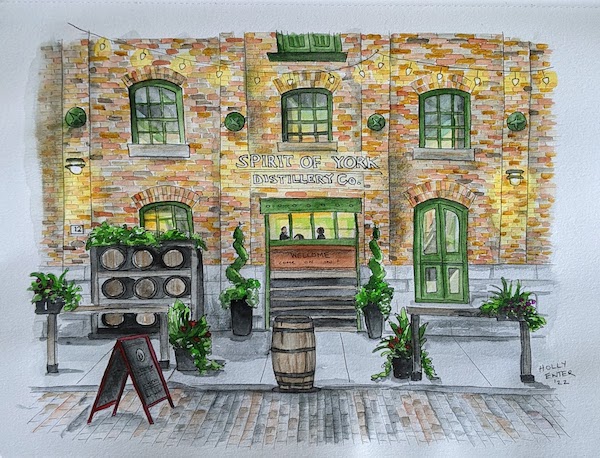
Practicality, for all its advantages, has its faults. At times it can blind us to things important and valuable. Jesus’ followers and disciples were (relatably) concerned about practical things: feeding hungry crowds, keeping pesky children out of Jesus’ way, staying afloat on stormy seas, managing the household and hostess duties. Jesus gently rebukes this way of thinking; not encouraging neglect of the practical necessities, of course, but reminding them and us that there were important things to see and learn in those moments that could be missed if our focus was only on what was practical. When a woman poured out expensive oil on Jesus, the disciples were aghast. It seemed a waste; surely there were more pragmatic uses for the money spent on this costly, fragrant oil. But Jesus does not rebuke the woman for this extravagance; rather he rebukes the disciples, saying, “She has done a beautiful thing to me.” This beautiful act continues to be told “as a memorial to her” ever since, just as Jesus said it would. Beauty has that ability to linger on in hearts and minds, inspiring others for generations to come.
It’s easy, like the disciples, to get caught up in all our cares and concerns, the toiling and spinning of every day. What will we eat, wear, and how will we get everything done? Jesus points out “life is more than food, the body more than clothes.” For those of us whose tendency is to focus solely on these practical things, he encourages us to consider the lilies of the field that “neither toil nor spin, yet not even Solomon in all his splendour was dressed like one of these.” All this created beauty not only points to a creative God who loves beauty, but has the further purpose of reminding us of his great care and love for us. If he adorns even the grass of the field with such beauty, which is “here today and gone tomorrow” (beauty that is fleeting, unnoticed, even unseen; like trees in full blossom in a forest or galaxies far away), how much more will he not care for us? Truly, the business of life can steal from our sight the beauty of these truths if we don’t take time to seek them out. Creativity encourages us to open our eyes to new perspectives, drawing us into new moments of awe and wonder. We find ourselves not only seeking beauty in a new way, but also finding it in unlikely places.
Jesus made the startling announcement that “the kingdom of God is at hand,” then spent his ministry years fixing the broken, teaching the ignorant, reversing the curse, lighting the darkness. In the “already, but not yet,” we too can offer glimpses of this kingdom. Andrew Peterson calls it “adorning the dark.” I love the picture portrayed by this phrase: giving words to how we push back darkness through our creative endeavours; motivation to spur us on when inspiration fades. We offer our gifts of creativity and beauty to the creator who doesn’t see it as wasted effort. We dive into this opportunity to reflect the creativity of God, whose image we bear. We accept his gracious invitation to create, knowing that though it may not always be practical, it is not without purpose.
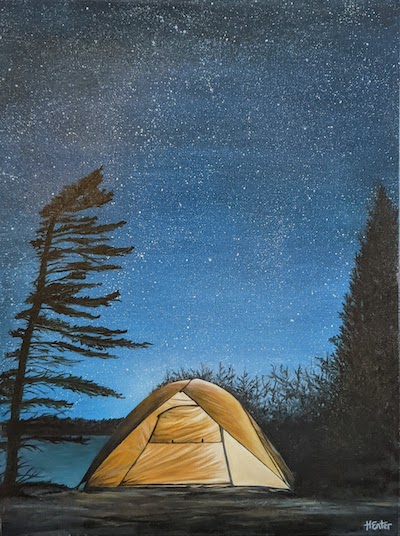
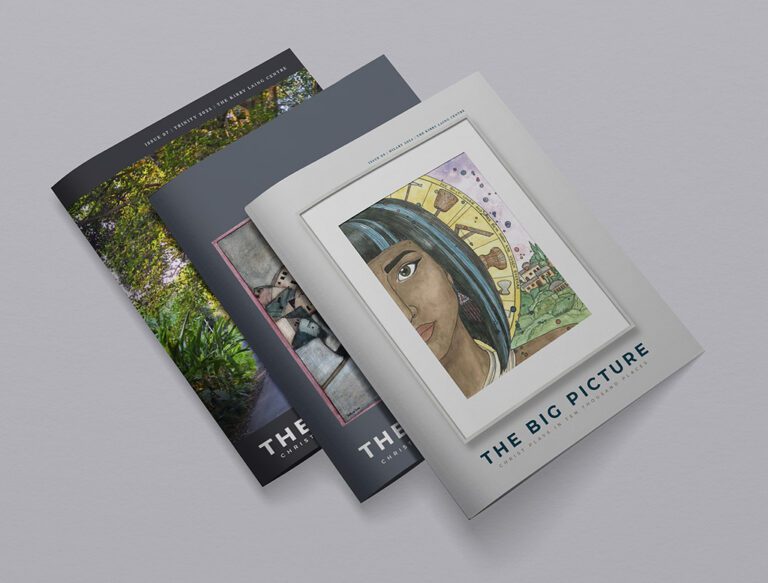
Get the latest issue in print or subscribe for the next three.